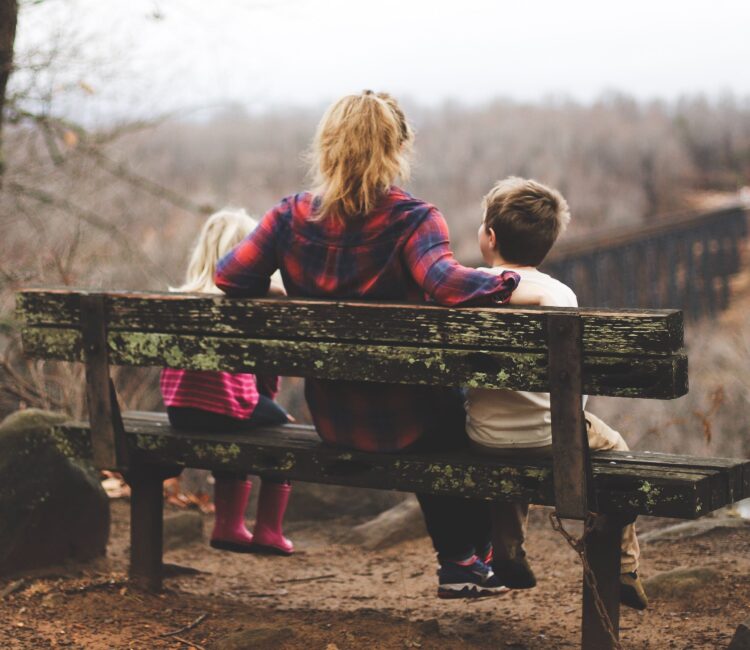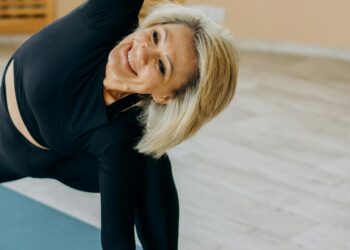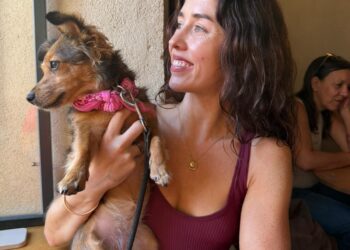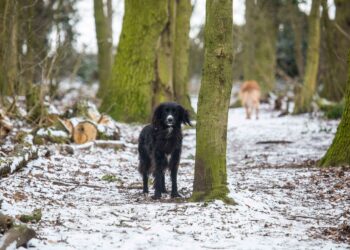Ann Marie O’Sullivan was diagnosed with stage-three breast cancer in 2020, at the age of 37. Here, she shares her advice on having this complex, confusing conversation with your kids
“Mammy is a little unwell, and it’ll take the doctors a bit of time to figure it out, like a tricky puzzle, but it’ll all be okay.”
That is what I came across when I looked online for guidance on how to tell small children about my cancer diagnosis. The words left me spitting rage.
I was angry – partly, because I wanted something to be angry about but mostly, because explaining the upheaval that was about to come into their lives as though it was a minor bump in the road, was not enough.
I understand the impetus to use euphemisms, metaphors, similes, platitudes, anything to soften the blow. All children deserve a childhood untouched by the word cancer but we made the decision early on that our children wouldn’t get that.
Saying the word
My husband and I agreed we would use the word cancer in our home. From the beginning, the oncologists were clear about the road ahead. My treatment plan would take a year. The side effects would be significant. This would have a big impact on their lives for a time. This was no ordinary illness and I didn’t want to pretend it was.
I believe that to say I was “just a bit sick” when they saw me bald headed in bed, too sick to turn over, would have scared them. Not to give it it’s name would have meant some mysterious sickness had entered their home which they had neither a word nor explanation for.
I did not want their friends to be out sick from playschool or school and for them to think that it was anything like what they’d seen at home. They needed the word, and they needed to know it was different from other illnesses.
Gathering resources
So I looked further and found resources that gave me a pathway to talk about it. I watched videos with my then-boyfriend (now husband) about how to say the hard things in an easy way. We gathered some stock phrases to make us feel more confident in what we were doing. We practised answering questions. We practised for as long as we could bear it and then sat them down.
Below is not our exact conversation. It is a version of it. How the children felt and dealt with it is their story, this is mine. This version is smoother than what we managed but it’s based closely on how we said the hard thing we needed to say.
They were aged four and seven at the time and to them, and us, this made sense.
What is cancer?
“Inside our bodies are lots and lots of different cells. They help keep us healthy, fight disease and turn our food into energy. Cells are amazing and we need them to live. Cancer happens when those cells start to do weird things. They grow and get bigger all by themselves and push against the other, healthy, cells near them. The cells with cancer are dangerous because they can grow and can make it hard for all the healthy cells around them to stay healthy.”
Why did you get cancer?
“Loads of people get cancer. Because it’s serious and so many people get it, the best doctors in the world have tried to figure out why it happens. Sometimes they find an answer but a lot of the time, they just don’t know.
“But they do know one thing. It’s not like a cold or tummy bug. You can’t get it from giving me hugs or cuddles. Nothing like that. It’s only in my body and you can’t get cancer from me. The doctors don’t know how I got it but they are concentrating now on how to get rid of it. There’s a whole team of them making a plan to get it out of my body.”
How will they get it out of your body?
“They are going to start with loads of strong medicine. The medicine is not like Calpol or Nurofen, the medicine is super strong. They need special chemists to make it and there’s so much of it that it takes a few hours to get it. It’s called chemotherapy and I’ll have to go in and out of hospital to get it.
“The good news about chemotherapy is that it’s powerful medicine that’s good at shrinking cancer. The bad news is it works a bit like a good rubber. So it rubs out the cancer cells but it’ll get some of the other cells too when it works. So, the doctors say it might make me feel very sick. It’s so strong, it’ll even make my hair fall out.
“But they hope the good cells will fix themselves up again once the medicine stops and I can wear a hat if I get a chilly head. The doctors are excited to give me the medicine because it’s the best medicine they have for cancer.”
Will you be okay?
“Daddy and I really hope so. I am so lucky to have brilliant doctors and nurses who are making a plan to make the cancer go away. They’ve taken pictures of the cancer inside my body with a machine that’s like an x-ray. After the medicine, they’ll take another picture and see if the medicine made the cancer smaller. That would be great if it gets tiny because then it would be easier to take out.”
Will you die if they can’t fix it?
“Cancer isn’t like other sicknesses. It’s sneaky and they don’t know yet what it’s going to do but the doctors say that I found it early and so that gives them a good chance of being able to take it all out. That would be the best thing and that’s what we’d all love to happen.”
Why are you sad?
“I have been sad since I heard I have cancer. It’s big news and it’s not good news. I’d much prefer not to be sick and for everyone to be healthy together. So, it’ll probably take a bit of time to understand it and I might feel sad or worried about it, but that’s okay.
“It makes sense if you get bad news to feel a bit sad or confused or angry about it. But it has helped me to ask questions. Daddy and I have been talking lots and lots about it and that helps. Everyday I think of new questions and I put it on a sticky note so I can remember to ask the doctor.
“We got sticky notes for you too in case you’d like to write down or draw any of your worries or questions. You can talk to us about anything or ask us as many questions as you like. Do you have any questions now?
Can we have a snack?
“Yes!”
For more information on the signs and symptoms of breast cancer, click to breastcancerireland.com. To take part in the Great Pink Bake Off in aid of the organisation, click here for details. For more on Ann Marie and her writing, visit her Instagram page @amoswriting.








